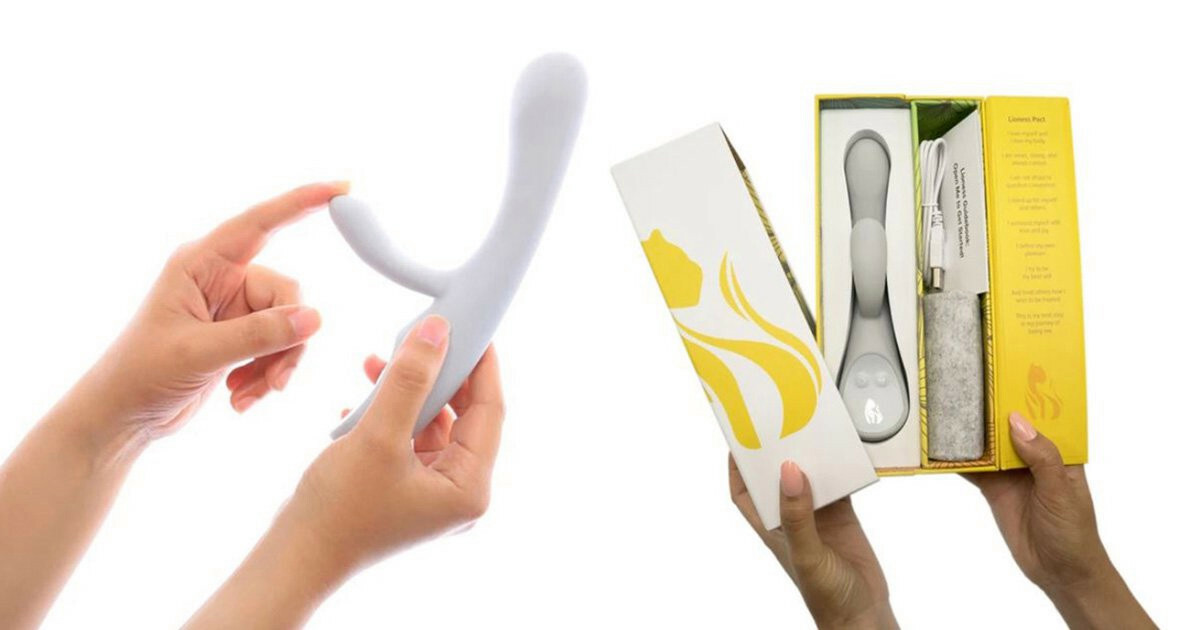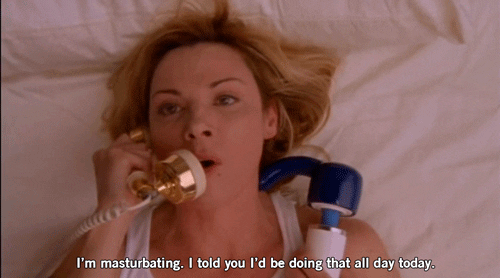Sex has never been an easy topic to talk about publicly, and not necessarily because we don’t want to talk about it but simply due to the taboo and stigma that often surround it.
Liz Klinger, the Co-Founder and CEO of Lioness (@lionesshealth) seems to agree with us on the matter: “Throughout my life, I found myself wondering why sex wasn’t talked about more”
The artist-turned-entrepreneur, just like us, has often found herself wondering why this is, but instead of keeping these thoughts to herself, she was encouraged by them, using them as a means to bring light to the matter, helping us all in the process. She created Lioness, the only smart vibrator that uses biofeedback, precision sensors, and an app to help its users visualise, track, and analyse your arousal and orgasms. But Lioness isn’t just your typical vibrator, its technology and advanced biofeedback features are more similar to an early smartphone or a research device used by Masters and Johnson than your typical vibrator, making the most out of self-love and pleasure with an empowering approach accompanied by edge-cutting technology.
As Klinger explains, sex and sexuality became her expertise in a rather natural way, starting from her private sphere with people questioning her at sex toy parties she used to host, and transferring into the public one developing a business of its own.
“I sold sex toys and hosted sex toy parties where people would pull me aside and ask me questions about sex that they hadn’t asked their partner or doctor about… I found relief knowing I wasn’t the only person who had these questions, but I also realized that there’s a huge problem when it comes to getting the answers and more information about something so fundamental. Moreover, everyone is different, so you’d want answers that are relevant to you based on your own body and experiences. Getting access to personalized resources and information are what drove me to create Lioness.”
But as exciting as this new territory may have been it did not come without its challenges. Lioness represents a daring idea that succeeded in an industry that wasn’t easy to break in.
“It’s difficult to convey something new to the public. We’re the first to create a product like this, so there aren’t easy comparables for people to grasp the concept. Add that it’s about a taboo topic like sex, it’s easy for people’s minds to stray all over the place. When you also consider that there are different levels of understanding of sex, censorship, and personal biases, it can be even tougher to break through the noise.”
Even if we may all understand and agree on the importance of sex it seems that the relevance of its awareness remains as a fluctuating topic. According to Klinger even if sexual awareness appears to be everywhere around us many aspects of sex are perceived to be taboo that the general public may not realize.
“One of the biggest challenges sexual wellness companies are facing is that many people don’t realize how censored topics about sexual health and wellness are, especially for people with vaginas. While ads for erectile dysfunction and 4-hour erections can air on prime time TV [in the United States], any mention of anything pertaining to the word “vagina” is treated like it’s a four-letter word.”
She argues that the health, wellness, and education relating to sex is often treated as if it were merely a topic of entrainment leading it to be hidden, shadowbanned (not seen on newsfeeds, even to people who follow the account sharing the content), or even directly banned. Even the social media platforms that are often praised for their liberty have been removing, shadowbanning, and removing any content that revolves around these topics for years.

“Even when it’s about things like sex education… Google and Amazon have also been doing some interesting filtering on sex information and sex products respectively. Most people never see the filtering in the background, so they never know there’s something going on behind the scenes that influences what they’re able to see (or not). It doesn’t matter where you live in the world and how cultures and social mores may be different, these rules are fairly consistent whether you live in the United States, the United Kingdom, Saudi Arabia, or anywhere else in the world.”
As Klinger recognises a certain level of filtering is necessary, for example when it comes to censoring adult content from underage users or simply individuals who are not comfortable with such content and information. However, the excess of it has led to products that are beneficial to sexual function and progress being banned from the market and general sexual educational landscape. Even menopause products and research reports are often filtered as “adult content.”
With the current pandemic and the circumstances many of us find ourselves in it may have been assumed that an increasing majority is starting to consider and resort to sex toys and tools for self-satisfaction, but this isn’t necessarily the case.
When asked about this reluctance the femtech expert responded by encouraging everyone to break this barrier: “Novelty is the spice of life! And now more than ever, since many of us are staying close to home right now, there’s more room for self-exploration and trying not only sex toys, but also everything out there around pleasure, self-awareness, and health… I think a lot of us are feeling the stress and monotony of the pandemic.”
“Trying a new sex toy can be a way to add some novelty in our lives, especially right now. There are so many different ones out there, as well as products for foreplay, as well as written, audio, and visual erotica created for and by women.”

Even if self-satisfaction may not be the solution to overcome the effects of lockdowns in our daily lives and even mental health Klinger simply suggests that it can still help as relieving mechanism for stress and an alternative for anyone who is experiencing a lower sex drive. “There’s a lot of pressure to come out of the pandemic “better” or “healthier.” While that may not be possible for all of us, there’s no reason why having a better or healthier sexual relationship with ourselves can’t be a part of that too.”
When considering the benefits of sexual pleasures there’s an ongoing debate on whether it is solely for physiological reasons or it also relates to positive psychological satisfaction. There’s no reason it should exclusively be related to just one, as Klinger points out it’s often correlated to both, even if it may not be obvious at first. “They’re equally important, typically if one aspect of sexual pleasure takes a hit, it usually affects the other (physiological or psychological) as well since they are interrelated. We’ve seen this most viscerally with a few case studies of Lioness user documentation of orgasm satisfaction and other factors from things like stress, amount of sleep, whether you’re with a partner or not, medications, alcohol, and more.”
Lioness represents a positive change in our mindset and a product that could benefit anyone who is open to try it and find out more about oneself sexually. “At Lioness, we believe that knowledge is power..and pleasure. The more we know about our own pleasure, the happier, healthier, and more self-confident we will all be.”
To find out more about it don’t hesitate to check out their official website, with plenty of options for more personalised and in-depth ways to explore pleasure.
Interview by Chiara Ferrari







